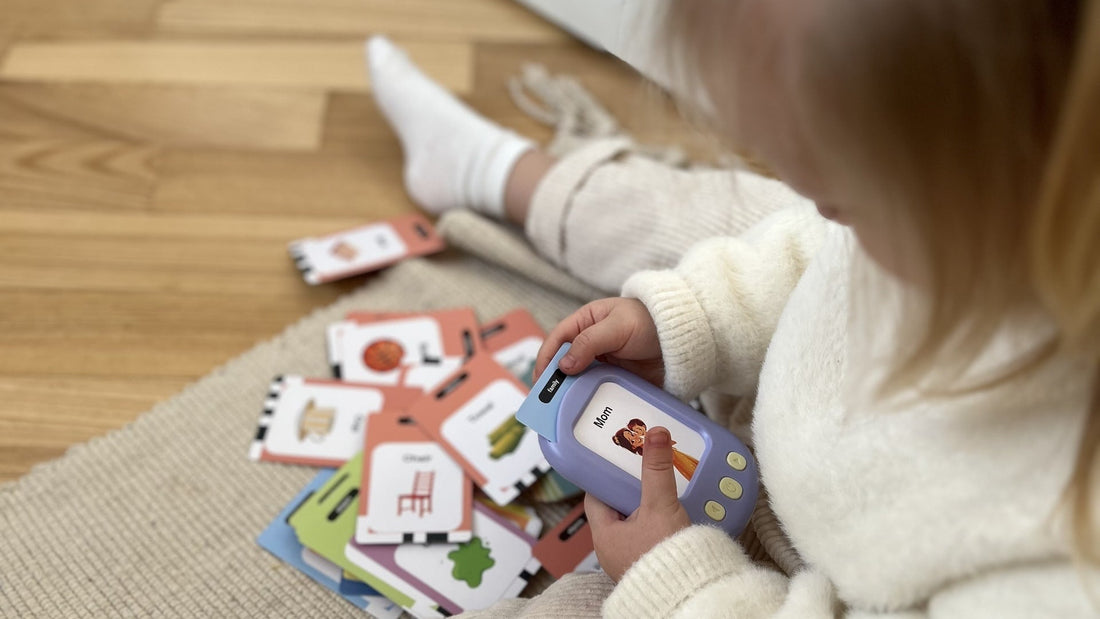
Helping kids break free from confidence struggles: A parent’s guide
Confidence isn’t just about standing tall and speaking loudly — it’s about feeling secure enough to try, fail, and try again. Some kids seem to exude natural confidence, while others hesitate, second-guess, or avoid speaking up altogether. If your child falls into the latter group, you’re not alone. The good news? Confidence isn’t something kids either have or don’t — it’s a skill that can be developed.
What’s really holding kids back?
Many parents assume a quiet child is just shy, but underlying confidence struggles often stem from deeper issues:
- Speech hesitation: Kids who struggle to pronounce words correctly or form sentences may stay silent to avoid embarrassment.
- Over-reliance on screens: Passive content consumption can reduce real-world social interactions, making it harder for kids to express themselves.
- Fear of being wrong: Some children worry so much about making mistakes that they avoid speaking up at all.
- Lack of encouraging environments: Without consistent opportunities to practice speaking in a safe space, confidence can dwindle.
Rebuilding confidence, one step at a time
If a child hesitates to speak, forcing them into uncomfortable situations won’t help. Instead, build confidence through small, achievable steps:
1. Shift the focus from perfection to progress
Rather than correcting every mispronounced word, celebrate their effort. “Wow! I love that you tried that big word!” helps reinforce positive risk-taking.
2. Use role-playing to strengthen social skills
Pretend play isn’t just fun — it’s practice for real-life conversations. Try role-playing as a restaurant customer or a storyteller, where they get to lead the dialogue.
3. Create verbal routines
Confidence grows when speech feels natural. Encourage predictable verbal exchanges: “What was your favorite part of today?” at dinnertime or “What should we do this weekend?” during family outings.
4. Use interactive, speech-focused tools
For kids who need more structured support, engaging tools like SmartKiddo offer screen-free, interactive prompts that encourage verbal participation. It’s not about drilling words — it’s about making speech fun and natural.
5. Let them lead conversations
If adults dominate conversations, kids may feel like their input doesn’t matter. Ask open-ended questions and show genuine curiosity in their responses.
Every conversation builds confidence
Helping kids develop strong speech skills isn’t about perfection — it’s about progress. The more opportunities they have to express themselves in a safe, supportive environment, the more confident they become. Whether through playful role-playing, daily verbal routines, or interactive speech-building activities, small, consistent efforts lead to big breakthroughs.
Rachel’s journey helping her daughter find her voice
“I remember the first time I realized something was different. We were at our neighbour’s barbecue, and all the kids were running around laughing, but Maya, my daughter, sat right next to me holding my shirt (she was 4 y.o back then). I asked her if she wanted to play, and she shook her head shrugging. This was becoming a pattern. At home, she talked my ear off asking a million questions and naming her every toy. But when we were around other people she was silent. If someone asked her a question, she’d just look at me, waiting for me to answer.
I realized I needed to help her open up. We started playing games where she acted out words or sang silly rhyming songs. I talked to therapists and as per their recommendations ditched to screen-free toys that encouraged her to practice speaking without making it feel like work. And to keep building her confidence, we started going to small group activities together — music classes, and even just trips to the park where she could watch and join in at her own pace. Slowly, she began interacting more, not just with words but with smiles, gestures, and little moments of connection. Patience made all the difference — giving her space to grow on her own terms, without pressure.”
References & Footnotes
- American Speech-Language-Hearing Association (ASHA) – Speech and language development milestones.
- National Institutes of Health (NIH) – Studies on the effects of screen dependency on emotional regulation, social skills, and attention span in children.
- Mayo Clinic – Causes of speech delays and when to seek help.